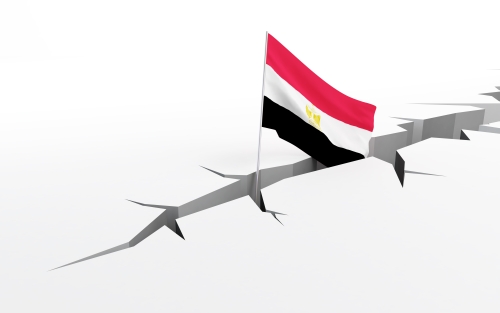The 2011 fall of President Hosni Mubarak in Egypt led to a competition between Gulf Cooperation Council (GCC) countries hoping to influence the political direction of the country.
Saudi Arabia, Qatar and the Muslim Brotherhood

While Qatar emerged as one of the strongest foreign backers of new President Mohamed Morsi and the Muslim Brotherhood (MB), Saudi Arabia, along with other Gulf states such as the United Arab Emirates (UAE), was quick to back the ousting of Morsi by the Egyptian military on 3 July 2013.
Although friction between the external policies of GCC countries existed before 2011 – Qatar, for example, had relatively better relations with Iran than other Gulf states – a situation where one country supported a political movement which had been deemed subversive by another was unprecedented.
Domestic concerns and regional ambitions
The disagreement was partly related to the larger struggle for legitimacy set in motion by the Arab Spring. In particular, Qatar and Saudi Arabia disagreed on whether to embrace political change in Egypt or to oppose it because change abroad might inspire demands for change at home.
However, Middle East analyst Brian Katulis argues that, “the differences between the Qatari and Saudi approaches to the Middle East uprisings in general and with regard to Islamist movements in particular have less to do with ideology than with different capabilities and policy approaches, informed by the two countries’ relative internal advantages and vulnerabilities.” These differences range from geography to domestic politics. For instance, Saudi Arabia’s larger size makes it more vulnerable to internal revolt, while Qatar’s support for the MB is bolstered by the organisation’s Qatari branch having dissolved itself in 1999 and declaring its support for the monarchy’s religious policies. However, it is likely that Qatar also saw an opportunity to use events in Egypt to assert its regional importance, vying for influence both through economic assistance and the media (most significantly via Qatar’s widely watched al-Jazeera satellite TV station which has often been considered sympathetic to the MB).
Morsi overthrown
When Morsi was finally overthrown on 3 July 2013, Saudi Arabia, the UAE and Bahrain expressed support for the military crackdown on Brotherhood supporters and the new Egyptian government was offered a joint Saudi-UAE-Kuwaiti $12 billion aid package. Qatar, on the other hand, predictably condemned the crackdown on its Brotherhood allies.
However, Global Insight explains that Egypt’s economy remains fragile and its public finances are deteriorating.1 While the anti-Brotherhood Gulf states might seem to have gained the upper hand, future Qatari financial assistance cannot be ruled out.
References:
1 “Egypt: Country Outlook”, IHS Global Insight, 30 August 2013.








[…] published here by the Library of the European […]